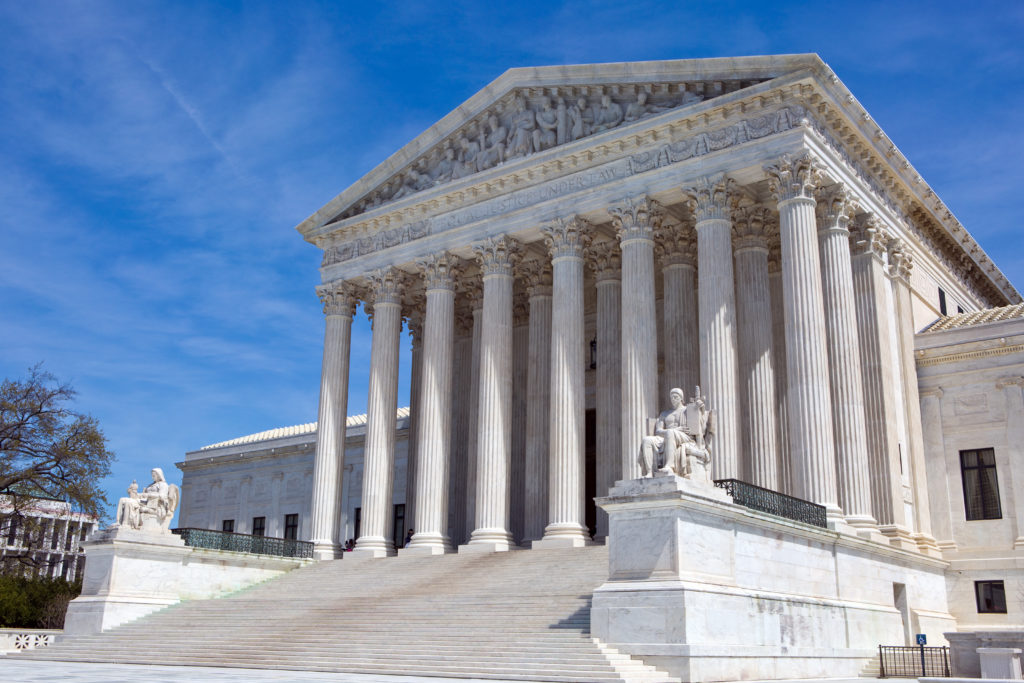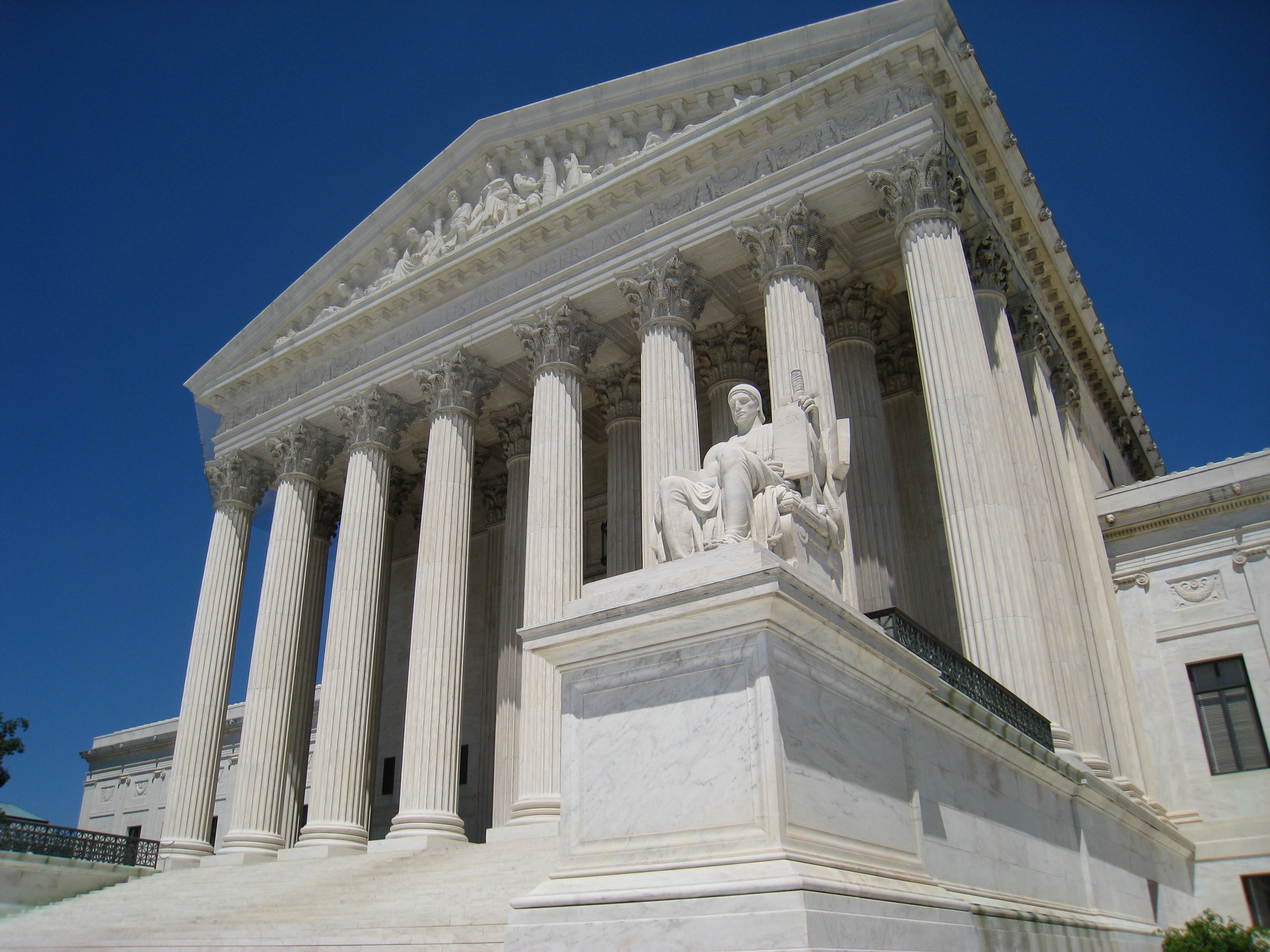
Uncovering the Truth About Supreme Court Justice Kavanaugh
American Oversight continues to fight the unprecedented opacity that surrounded the confirmation process of Supreme Court Justice Brett Kavanaugh. In 2018, the Senate rushed ahead with hearings and the Trump administration withheld vital records concerning Kavanaugh’s fitness for the nomination. American Oversight has been working on multiple fronts to ensure that the public has the information it deserves to vet Kavanaugh’s ability and moral character as suitable for the role of Supreme Court justice.

Background and Litigation
On Oct. 8, 2018, Justice Brett Kavanaugh was sworn in to the Supreme Court following a contentious and controversial nomination process, which included a limited investigation by the Federal Bureau of Investigation into sexual assault allegations. American Oversight is seeking records through FOIA requests and litigation so the American people can better understand Kavanaugh’s credentials, background, and character.
Representing the Senate
On Sept. 17, 2018, American Oversight filed a lawsuit and a motion for a temporary restraining order on behalf of six members of the Senate Judiciary Committee — Sens. Richard Blumenthal, Patrick Leahy, Sheldon Whitehouse, Mazie Hirono, Cory Booker, and Kamala Harris — seeking the release of records from the National Archives and the CIA related to Kavanaugh. The senators had filed Freedom of Information Act (FOIA) requests as a last resort after the administration and Committee Chairman Chuck Grassley blocked access to records they deemed essential to fulfill their constitutional advice and consent responsibility.
Fix the Court Litigation
On Sept. 6, 2018, American Oversight filed an emergency lawsuit on behalf of watchdog group Fix the Court and moved for a preliminary injunction, seeking the release of Kavanaugh records from the Department of Justice. This complaint asked the court to order the release of documents detailing Kavanaugh’s interactions with members of the Office of Legal Policy (OLP) during the five and a half years in which he worked in the George W. Bush White House.
Over the first two days of confirmation hearings in early September, Sen. Patrick Leahy confronted Kavanaugh with questions and documents that appeared to show that while a White House attorney, Kavanaugh knew, or should have known, that he had received confidential information stolen from Democrats on the Senate Judiciary Committee. Those emails — which should be responsive to Fix the Court’s FOIA request — included correspondence with officials at OLP. While Leahy has released several of these emails to the public, he also noted that “[t]here are many more [emails] that have been hidden from public scrutiny under a faulty claim of committee confidentiality.” He also said he “suspect[s] there are even more that were never released to the committee at all, based on the partisan and woefully incomplete document production.”
This is the third lawsuit brought by American Oversight on behalf of Fix the Court to uncover records documenting Kavanaugh’s previous government service. Two prior complaints, filed on July 10, 2018, sought the release of documents from Kavanaugh’s work on the Starr commission in the 1990s and from his time in the Bush White House. One complaint, against the National Archives and Records Administration (NARA), sought records from the Office of Independent Counsel Ken Starr, including all of Kavanaugh’s correspondence, notes and memos, and other records from his time in the OIC from 1994 to 1998. NARA ultimately produced more than 20,000 pages of Kavanaugh records that otherwise would not have been released. The complaint against the Justice Department sought all communications between the assistant attorney general in charge of the Office of Legal Counsel to Kavanaugh while Kavanaugh was at the White House as staff secretary and in the counsel’s office. The Justice Department has now produced several hundred pages of records in response to this lawsuit.
Lambda Legal Litigation
On Sept. 4, 2018, Lambda Legal filed a lawsuit, represented by American Oversight, seeking the release of Kavanaugh records from the Office of Management and Budget. The lawsuit, filed in U.S. District Court for the District of Columbia, challenged OMB’s failure to respond to a FOIA request filed in August that sought documents related to Kavanaugh’s involvement in Bush administration policies that discriminated against LGBTQ children, families and individuals.
Special Master Report
On Aug. 23, 2018, following a legal motion by American Oversight, the National Archives released the 1999 Special Master’s report on the investigation into leaks by the Office of Independent Counsel Ken Starr (OIC), where Kavanaugh then worked as a prosecutor. The long-secret report was released in response to a court order from the U.S. District Court for the District of Columbia, granting a motion by American Oversight to unseal the document.
Four copies of the report were prepared in 1999, but none were released to the public. At the time, it was reported that the report detailed evidence of “inappropriate disclosures to the press” by the OIC. Upon the report’s release in 2018, the Trump White House said, “This report refutes the latest false accusation by Senate Democrats and fully exonerates Judge Kavanaugh.” Contrary to this claim, the report did not exonerate Kavanaugh, as it addressed a narrow time period when he was not working for the Starr Commission.
